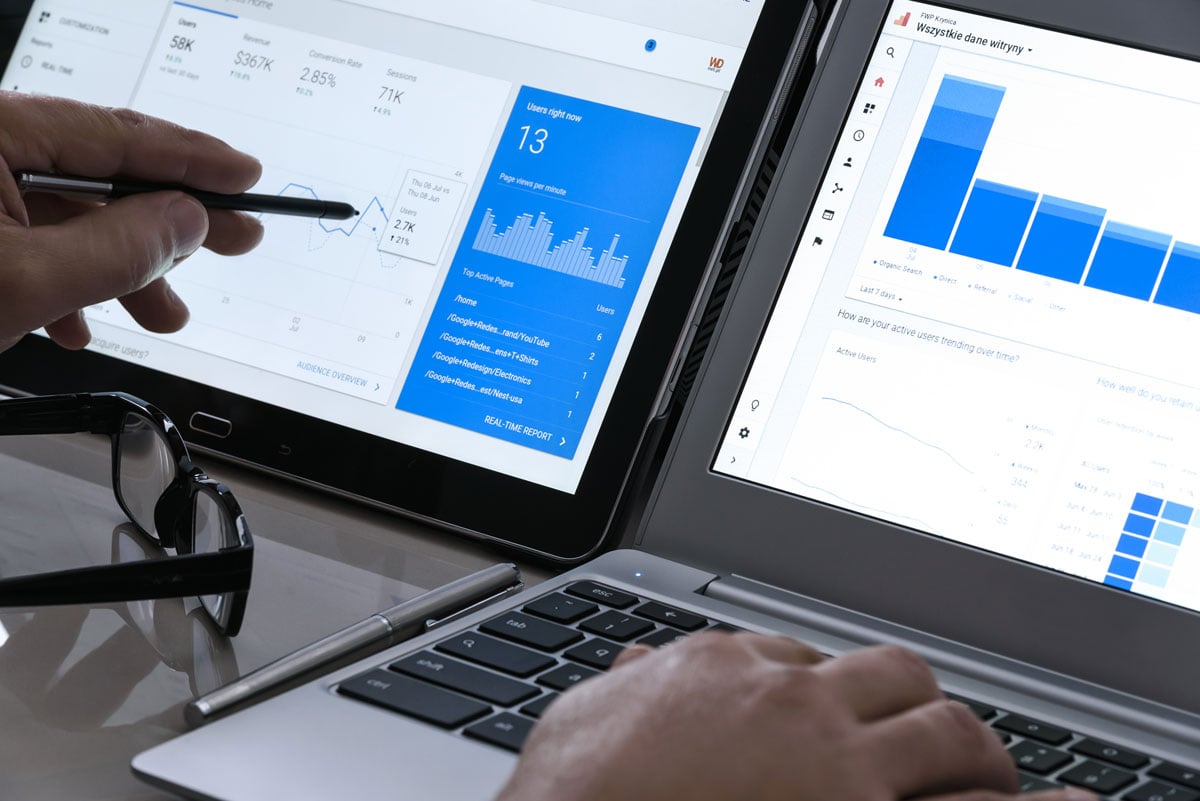The ultimate Hotel Marketing strategy guide
It’s never been easier to reach potential guests by leveraging the power of technology to assist with a hotel’s marketing strategy. However, it’s also just as easy for competitors to be in touch with customers, which means that your hotel marketing strategy must be more focussed than ever, and now is the time to boost it as the high season rolls in. In a very crowded arena, hoteliers have to find and maintain their own distinctive voice by developing a truly professional approach to their hotel marketing strategy.
In this article, we collected the main areas of hotel marketing that you should focus on. Keeping them in mind, you can create a well-rounded strategy for your accommodation, attract guests and increase the number of your bookings:
1. The vital importance of the hotel website
It can’t be overstated how important the hotel website is. This is your primary means of showing your values and underscoring the reputation of the hotel. Other channels such as the OTAs will only show a fraction of what you can say on your own website, and the OTAs present information in a formalised way. The hotel’s website can show exactly what the crucial messages are with great copywriting, still images and videos. Everything about the website must reflect the key values and unique aspects of your hotel.
However, hotel websites can now do much more than only marketing activities. Coupled with a contemporary Property Management System, every part of the guest journey can be conducted within your own cloud-based technology. For example, a Booking Engine becomes an essential tool, without which you are giving away your revenue stream to a third party. A PMS with a Booking Engine and Smart Solutions add-ons also means that you have a wealth of data available that lets you know in granular detail exactly who your guests are - their interests, age, family members, and much more.
2. The power of Search Engine Optimisation
Being visible is a major feature of all hotel marketing. Guests can research available hotels from anywhere, and the hotel which stands out through links to OTAs and a great website is the one which will come highest in the rankings by SEO. High rankings - particularly with Google, which is by far the most used search engine - mean that a hotel is more easily found and seen. Very few people look beyond the first page of search results, so your hotel has to pop out from all the rest, with great images, great descriptions, and keywords which boost visibility. This communicates the unique value proposition of your hotel and differentiates it from competitors.
Using the power of Google and other search engines requires an understanding of what their algorithms are doing. To fully understand how Google’s algorithms work, we recommend reading this article. The higher the SEO rankings, the more likely that potential guests will click through to your website. The skill of using keywords is to have descriptors which give a precise picture in as few words as possible. For example, ‘Comfortable hotel ideal for hikers in the heart of the Lake District’ gets straight to the core message, with the keywords ‘comfortable hotel’ and ‘Lake District’ hitting the SEO high notes.

3. Paying for ads and exposure
While attention to SEO is essential, it’s also worth considering the Return On Investment of various forms of paid advertising. Principal here is Google Ads, which has 90% worldwide reach and around 4.5 billion users. A careful choice of descriptors and ‘power words’ can help make your hotel attractive to the correct target audience. It’s worth noting that with Google Ads, there is no spending commitment, and you are in control of the budget. This also brings targeting benefits such as the choice of location for your ad to appear and - very importantly - targeting the chosen demographic.
Tourism is a saturated niche, so keywords can be rather competitive. Oftentimes, even if you are ranked first organically (with SEO) in the search results, there are still some paid ads above your listing. So if you want to be found truly in the 1st position, you need to launch ads. In our previous article, we collected some real-life Google ads examples that can work well in a competitive environment.
4. Work with travel influencers
Other forms of paid exposure can include the use of Influencers whose brand fits with your hotel. Influencers in the hospitality sector are mainly travel bloggers who can have an extremely large following. At the most basic level, in return for a free stay, bloggers will agree to write a generally favourable review of your hotel (but not always completely glowing - they have their own credibility to preserve!)
Before engaging with an Influencer, check out the style of their blog, what their demographic is, and how many followers they have. Influencers will sometimes expect to be paid in order to produce content and it can be worth considering this as part of a paid advertising strategy. At the other end of the scale, capitalise on any ‘celeb’ guests who happen to stay with you. You can also include simple solutions, such as Facebook’s boosting of posts.

5. Use social media to promote your hotel
Social media has radically changed the way businesses communicate with their demographic. Hotel guests use social media to tell their families and friends what a great time they’re having during their stay at your hotel. Social media is massively important in how your hotel is seen, and how that influences future bookings, as guests post reviews on social media and the OTA sites. And it’s not a one-way street - you must also post on social media.
Be proactive about what you post, and always respond to comments and messages. Keep your posts current, interesting, and high-quality in terms of great text and stunning images. Different channels have different requirements and demographics, so be prepared to tailor your messaging. It’s worth the time spent on creating brand guidelines for your social platforms. For example, Instagram is a ‘visual’ channel, whereas Facebook is generalised and more word-based. If your target market is twenty-somethings, then don't focus much on Facebook or X, but more ‘professional’ apps like LinkedIn or Telegram may be suitable, or the massively popular TikTok and Instagram.
User-generated content (UGC) is always great to use, with hashtags for hotels receiving mentions in customer stories, at the trendier end of social media. Ensuring that your hotel has a unique hashtag means guests’ posts will always direct back to you.
6. Email marketing still works
While social media channels are the prime means of communication with your customer base, don’t dismiss the power of email marketing. The beauty of emails is that they can be super-targeted if you are harnessing the power of a smoothly functioning Property Management System. You’ll have a huge amount of information about guests (usually entered by the guests themselves directly into your system), so this provides great opportunities to data mine and create personalised thank you notes, greetings and upsells. Social media is generalised, but emails can be really personalised. Particularly as you gear up for the high season, email marketing can be a highly effective way of reminding past guests that you’re in business!
7. Reputation is one of your most important assets
A hotel is nothing without a great reputation - something that can take a long time to build as brand values are established and then strengthened. Knowing what your hotel stands for is vitally important because then there is a story to tell potential guests. Luxury hotels are not the same as budget or convenience hotels, or sanctuary hotels, and it would be pointless to compete on the same ground. Understanding how your hotel benchmarks against similar hotels in your compset allows you to evaluate what you have to offer, and how this should be shaped. Reputation management defines what your offer is, and then supports this in every aspect of your marketing strategy.
8. Creating tempting offers and promotions
When you really know your customers, you can create offers and loyalty programmes which are tailored to their interests. It provides the opportunity for creating special events such as yoga or art weekends, and opens the possibility of partnering with local organisations and businesses to do joint promotions. By forming partnerships with local businesses and tourist offices a lot of the marketing work can be shared. You use their links and channels, and they use yours in a win-win that reaches exactly the target audience. You spread the word about their events, and they recommend your venue as a preferred hotel. Cross-promotions are simple to achieve, rewarding, and once established can run and run, season after season. Sometimes just working smarter is enough to achieve a great deal in hotel marketing strategy.
9. Knowing the Guest Journey in depth
Another important factor is to pay attention to every stage of The Guest Journey. There are many touch points along the way which the guest should be able to negotiate smoothly and easily. These include:
Pre-arrival
The initial enquiry is made when a potential customer starts looking for a suitable hotel. They may use the OTAs to do this, and if so, could go on to look at the hotel’s own website. The connection must be smooth and seamless, with the website providing more than the OTA’s brief outline.
Dealing with FAQs is fundamental for many guests in the initial stages of enquiry: How far from the airport? Is there onsite parking? Is the hotel pet-friendly? Many hotels now use chatbots to deal with such FAQs, therefore speeding up and encouraging the booking process. Chatbots are available in multiple languages and operate 24/7.
Making the booking is helped massively by having a Booking Engine linked to the hotel website, so that there is no need for a potential guest to return to the original OTA portal. This makes for guest convenience and ensures higher profitability for the hotel as no OTA fees are being paid.
During stay
From arrival onwards, the guest journey has to be efficient and smooth, and this is greatly assisted by contemporary technologies such as contactless check-in and keyless room access. These smart technologies also enable hotel staff to be less tied up with administrative duties and therefore spend more time welcoming guests and giving them the attention they deserve.
In-stays are where everything that happens in the hotel must serve to advance its reputation. Guests should be aware of a personalised experience, with every touch point being frictionless and enjoyable. Guests will go on to share their experiences of the hotel on social media, so you need to encourage great reviews about every aspect of your offering.
After check-out
Post-stay reviews have to be encouraged and curated, as it’s the opportunity for the hotel to continue a dialogue that has been established from first contact and to share reviews on its website. Post-stay emails, thank you notes and invitations to visit again with vouchers or special offers are essential for continuing the dialogue with guests.
Key takeaway
So let’s review what we know about creating a Hotel Marketing Strategy:
- The Guest Journey must be smooth and enjoyable at every touchpoint, making their stay a genuine pleasure. This runs from pre-booking, through in-stay and on to post-stay. You want guests to return to their journey with you in the future.
- Your hotel website is the most important tool you have in showing the unique features of your offering and underlining your brand values. The website must have crisp copywriting and excellent pictures or videos. Always think ‘less is more’ and put the day-to-day information in an FAQs section. Also, consider using a multilingual always-available chatbot, and for sure, have a PMS-based Booking Engine so potential guests stay on your site and commit to their booking.
- Paid advertising can work, especially through Google Ads. Note however, that - as with the OTAs - you’ll have to fit your message into a relatively formalised mould.
- Search Engine Optimisation helps get your marketing message out to the people who need to see it by using precise words and phrases about the features and benefits of your hotel. SEO pushes keywords about your offering to the top of the rankings, (and remember, very few people continue their quest after viewing the initial results page, so first impressions really count).
- Agreements with Influencers can have a positive effect in reaching a wider audience of the right demographic for your hotel, and provide opportunities for special themed events and offers.
- Social media use and email marketing are prime ways to reach customers. The first is to mainly attract new customers and spread the word about your hotel’s brand values. The second retains and builds existing customer loyalty and encourages repeat bookings.
- Knowing what you stand for and who your customers are is the ultimate hotel marketing superpower. You have a reputation to build and maintain, and being able to develop that in a niche market to specific customers is the route to success.
- Special promotions, offers, and loyalty programmes are the logical outgrowth of this to ensure future and return business.
Tech talk for hotel marketing strategy success
Over the last decades, there have been enormous advances in technologies which make running a hotel smoother and easier. Now, a new generation of hotel software enables convincing personalisation of all aspects of the guest journey. We are SabeeApp, a hotel software company with over ten years of experience, exclusively in the hospitality industry. We have a deep knowledge of how to satisfy guests and hoteliers alike with innovative, efficient automation of tasks which previously soaked up staff time.
We know about hotel marketing strategy because we stand behind many major players in the travel industry, and thousands of hotels around the world. Book a free no-obligation demo now, and let us help you achieve success with a hotel marketing strategy that sets you up for high-season success!



